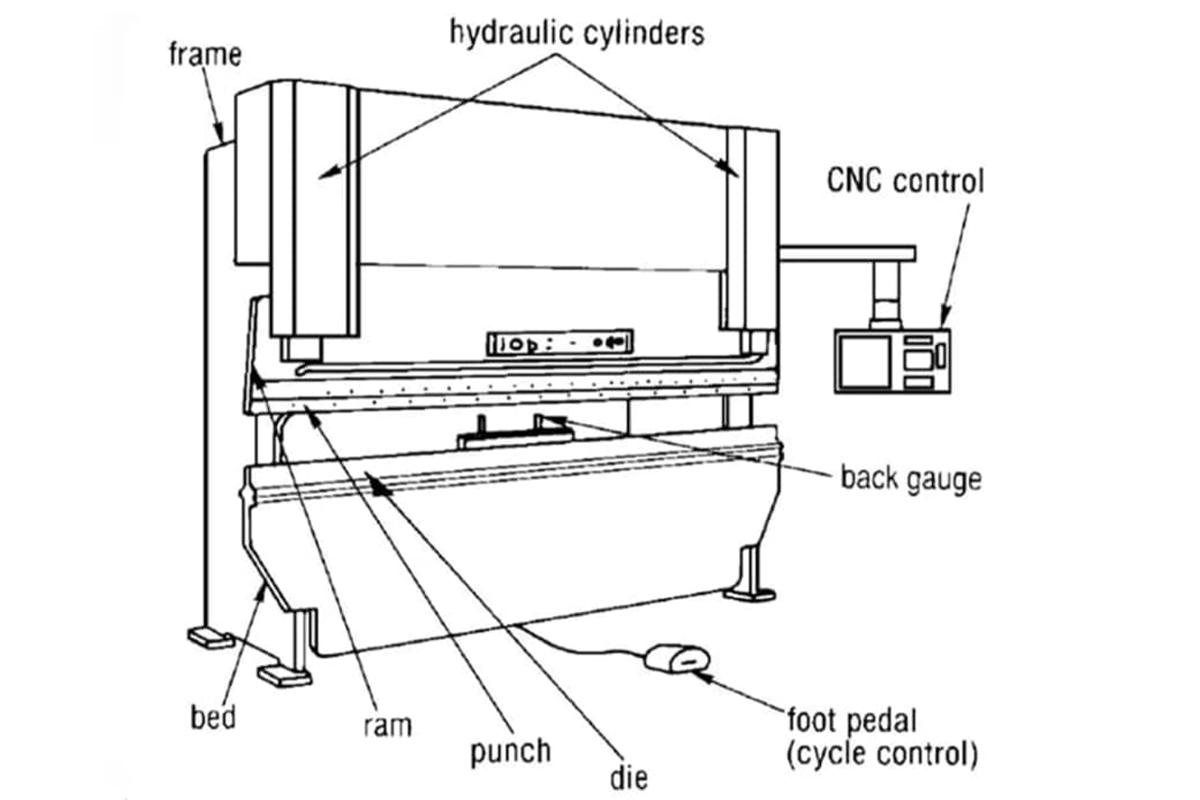Hydraulic Valves in Press Brake Machines: Precision Control for Accurate Bending

Hydraulic valves play a critical role in the performance and safety of press brake machines. As the core control components in the hydraulic system, these valves regulate the direction, pressure, and flow rate of hydraulic oil, enabling accurate, efficient, and smooth bending operations. For companies in the metal forming industry, selecting high-quality hydraulic valves is essential to maintaining productivity, consistency, and machine longevity.
This article explores the functions, types, materials, and technological advantages of hydraulic valves in press brake machines, with an emphasis on the superior value of our replacement parts for OEMs and end-users.
1. Key Functions of Hydraulic Valves in Press Brakes
Hydraulic valves in a press brake are responsible for:
Directing Flow: Ensuring hydraulic oil flows to the correct actuator or cylinder at the right time.
Controlling Pressure: Maintaining desired pressure levels and preventing overloading or system damage.
Regulating Flow Rate: Controlling the speed of the hydraulic fluid to ensure precise movement of the ram and bed.
Safety and Feedback: Valves also contribute to machine safety and assist in feedback loops for CNC-controlled operations.
By effectively coordinating these functions, hydraulic valves ensure smooth and consistent bending performance, prevent energy losses, and reduce wear on other hydraulic components.
2. Common Types of Hydraulic Valves Used in Press Brakes
Hydraulic valves come in various forms, each designed for a specific control task:
Directional Control Valves (DCVs)
These valves control the path of hydraulic oil flow. In press brakes, they manage whether oil goes to the top or bottom of the hydraulic cylinder, determining the ram’s movement direction.
Pressure Control Valves
These include relief valves, pressure-reducing valves, and sequence valves. They regulate system pressure, ensure safety, and allow for multi-stage bending processes.
Flow Control Valves
These valves adjust the flow rate of hydraulic fluid, enabling fine-tuned control of the ram's movement speed and ensuring consistent bending quality.
Proportional Valves / Servo Valves
Used in high-end CNC press brakes, these valves offer precise, real-time control of pressure and flow through electronic signals.
3. Materials and Manufacturing Characteristics
High-performance hydraulic valves must be manufactured from robust and wear-resistant materials to withstand high pressures and long operating cycles. Common materials include:
Alloy Steel (e.g., 42CrMo, 20CrMnTi) – for excellent strength and fatigue resistance.
Hardened Stainless Steel – for corrosion resistance and high-pressure tolerance.
Precision Ground Spools and Bores – to ensure leak-free operation and smooth flow control.
Our hydraulic valve components are produced using CNC machining, automated grinding, and precision honing to meet the tight tolerances required in press brake systems.
4. Technical Advantages
Modern hydraulic valves used in CNC press brakes offer a range of performance benefits:
High Flow Accuracy – Consistent fluid control ensures repeatable and reliable bending operations.
Fast Response Time – Essential for dynamic load compensation and real-time adjustments.
Compact Design – Saves space within the hydraulic system and simplifies machine integration.
Integrated Feedback Sensors – In proportional and servo valves, enabling advanced diagnostics and automation.
Leak-Free Design – Improves energy efficiency and minimizes maintenance needs.
5. Our Valve Products: Why Choose Us
As a specialist in press brake spare parts, our hydraulic valves are trusted by OEMs, service centers, and end users for their performance, reliability, and compatibility.
Product Highlights:
OEM-Compatible Designs: Fully interchangeable with major press brake brands (e.g., Amada, Trumpf, Durma, LVD).
High-Pressure Rating: Valves rated up to 315 bar (or as needed), suitable for all modern hydraulic press brakes.
Superior Sealing Technology: Minimizes oil leakage and reduces maintenance intervals.
Optional CNC Proportional Valves: For customers seeking to upgrade mechanical systems to CNC-enabled machines.
Fast Lead Times & Technical Support: We maintain ready stock and offer application engineering for custom solutions.
6. Typical Applications in Press Brake Systems
Main Hydraulic Circuit: Uses directional and pressure control valves to drive the ram and execute bending.
Backgauge System: Often includes servo valves for precise positioning and movement control.
Clamping and Holding Systems: Employ flow and pressure valves for safe and accurate clamping of tools and workpieces.
Safety Systems: Use pressure-relief valves to prevent overpressure conditions, safeguarding both the operator and the machine.
Conclusion
Hydraulic valves are the “nervous system” of a press brake’s hydraulic system—controlling movement, pressure, and precision. The right valve choice directly affects performance, safety, and durability. Whether you're replacing a worn valve or upgrading to higher-spec components, our hydraulic valve solutions offer industry-leading quality, competitive pricing, and exceptional support.
We invite OEMs, machine rebuilders, and press brake service providers to partner with us for reliable hydraulic solutions tailored to modern bending technology.





